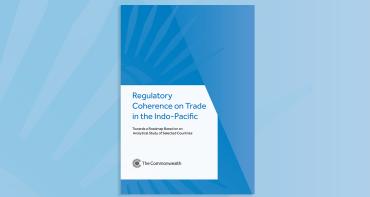Article by the Secretaries-General of the Commonwealth and La Francophonie as leaders discuss global issues at the G20 Summit in Los Cabos, Mexico
By Abdou Diouf and Kamalesh Sharma
The Los Cabos summit is looking at key facets of sustainable development, notably green growth, food security and climate change.
About 90 per cent of the world’s countries are without seats at the G20 table and most continue to experience severe development challenges beyond their control – challenges associated with access to finance for development, to international trade markets, equitable participation in the global trading system, and attracting investment, particularly in infrastructure. These challenges are compounded by persistent debt and, for many states, especially small island countries, high vulnerability due to their susceptibility to natural disasters.
It is evident that the G20’s nine-pillar multi-year action plan for development has been pursued with unprecedented vigour. Key challenges for the poorest, smallest and most vulnerable developing countries have been taken up as central priorities for G20 action.
The Mexican G20 Presidency has also pursued an unparalleled effort to reach out to non-G20 developing countries, particularly the poorest, smallest and most vulnerable countries, actively integrating experiences and lessons of development from these states into the Group’s policy framework on development.
The Commonwealth and La Francophonie, two associations representing over 100 countries, have contributed actively to the G20 development agenda in the lead-up to Los Cabos, and ahead of the Rio Earth Summit.
But the financing required for the priorities of developing countries needs to be raised through more concerted international action. Existing domestic and external sources of finance are inadequate to address the range and scale of these challenges. New and innovative sources of development finance must be found and given legitimacy: the options must be adaptable to individual country circumstances rather than having a one-size-fits-all straight jacket approach to development funding from official sources.
Also new options should be explored to address escalating debt, including innovative actions to tackle liquidity and solvency challenges of the most severely affected countries.
In addition, there must be a scaling up of investment in the natural resource base of developing countries as a foundation for green production and growth. New initiatives must be taken to promote the sharing of knowledge of experiences, practices and lessons learned.
Finally, for many developing countries, the consequences of food insecurity remain severe. National and regional responses to mitigate the impacts of food security have been significant, but they need to be complemented by more concerted international action. Leaders of the G20, the Commonwealth and La Francophonie have all highlighted these challenges in the past two years, and the Mexican G20 Presidency sees the issue as a major G20 priority this year.
For the poorest and most food insecure countries, the measures required to address their challenges need to come as a package: long-term commitments for future investment, financial and technical assistance; support to build national capacity; and, a growth-oriented global trade environment. These countries also need new research better adapted, new tools to increase productivity for small landholders, and a shift towards the longer-term sustainable use of natural resource proceeds, recognising their special challenges.
Los Cabos G20 and Rio+20 summits offer crucial opportunities for agreement on a more holistic international approach to the pursuit of recovery and sustainable development, cohesively linking the building of inclusive green economies and green growth, addressing climate change and achieving food security.
Achieving this necessary breakthrough will require unlocking political will. It will need viable financing options and frameworks to support transformative actions. And it will need an enabling environment through integrated environmental and sustainable development governance.
The G20 showed that it was able to tackle the world’s economic fragility and challenges. Success at Los Cabos will depend on G20 leaders’ ability to galvanise the kind of concerted collective action they mustered to avert global recession in 2008. In partnership with the world’s developing countries and with all shouldering their share of responsibility, the G20 can show crucial global leadership again and responsibility for all in these newly challenging and globally fragile times.
Abdou Diouf is Secretary-General of La Francophonie and former President of Senegal.
Kamalesh Sharma is Secretary-General of the Commonwealth.



